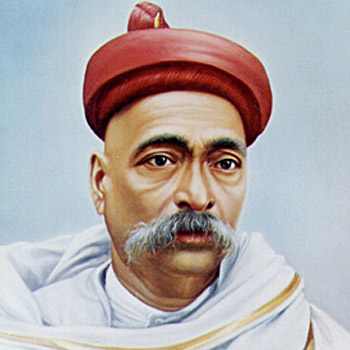Ramakrishna Paramhansa
Sri Ramakrishna Paramhansa (1836 - 1886) remains one of the most luminous figures in India’s spiritual tradition. Revered as a mystic, saint, and spiritual teacher, his simple yet profound life became a beacon of religious harmony and inner awakening. He taught not through intellectual discourse but by experiencing, embodying, and demonstrating the essence of religion in everyday life.
Early Life and Background
Born on 18 February 1836 in the village of Kamarpukur, Bengal, Gadadhar Chattopadhyay (later known as Ramakrishna) grew up in a humble and deeply religious family. His father, Khudiram, and mother, Chandramani Devi, were known for their piety. From a young age, Gadadhar displayed an unusual inclination toward spirituality, immersing himself in devotional songs, temple rituals, and deep emotional worship.
Unlike many of his contemporaries, he did not pursue formal education or worldly achievements. For him, the direct experience of the Divine far outweighed book knowledge.
Spiritual Awakening
At the age of nineteen, Ramakrishna became the priest of the Dakshineswar Kali Temple, near Kolkata. This temple, dedicated to Goddess Kali and founded by Rani Rashmoni, became the sacred ground for his intense spiritual practices.
Ramakrishna’s worship was not ritualistic but experiential. He treated Kali not as a distant deity but as his living, loving Mother. His devotion often led him into states of ecstasy (samadhi) where he would lose external consciousness, immersed in divine bliss.
Experiments with Multiple Paths
What made Ramakrishna extraordinary was his yearning to verify spiritual truths across religions. He practiced various paths to the Divine, including:
- Hinduism (Bhakti and Advaita Vedanta): He followed the devotional approach of seeing God as Mother and child, as well as the non-dualistic realization of Brahman.
- Tantric Practices: Under the guidance of Bhairavi Brahmani, he practiced rigorous forms of Tantra and attained spiritual perfection.
- Vaishnavism: He worshipped Lord Rama and Krishna with intense love and devotion, experiencing them as real and living presences.
- Islam: At one point, he practiced Islamic devotion, reciting prayers and meditating on Allah until he achieved a vision of the Divine in Islamic form.
- Christianity: Similarly, he meditated on Christ, leading to an experience of the compassionate Jesus.
Through these spiritual experiments, Ramakrishna concluded that all religions are valid paths to the same ultimate Reality.
Teachings and Philosophy
Ramakrishna was not a scholar; instead, he conveyed truths in simple parables, metaphors, and everyday analogies. Some of his central teachings include:
- God is One, Paths are Many: Just as rivers flow into the same ocean, all religions ultimately lead to God.
- Direct Experience Over Theory: Religion is not about dogma or doctrine but about realizing and experiencing the Divine personally.
- Simplicity and Purity: Spiritual life should be rooted in sincerity, humility, and purity of heart.
- Role of the Guru: Ramakrishna emphasized the importance of a true teacher who awakens direct realization in the disciple.
Relationship with Disciples
While his fame grew, many seekers began visiting him at Dakshineswar. Among them were householders, devotees, and future spiritual leaders. The most notable was Narendranath Datta, later known as Swami Vivekananda.
Ramakrishna recognized Vivekananda’s potential as a world teacher and entrusted him with the mission of spreading spiritual truth. After Ramakrishna’s passing in 1886, his young disciples formed the Ramakrishna Mission, which went on to have a global impact.
Legacy and Influence
Sri Ramakrishna’s life was his message. At a time when India was struggling with colonialism, social reform, and cultural revival, his teachings reminded people of the depth of India’s spiritual heritage. His vision of religious harmony remains profoundly relevant today, offering a message of peace amidst sectarian conflict.
The Ramakrishna Mission, founded by Swami Vivekananda, continues his legacy of blending spirituality with service, offering education, healthcare, and humanitarian aid while spreading Vedantic philosophy worldwide.
Conclusion
Sri Ramakrishna Paramhansa was not a philosopher in the academic sense, nor a reformer in the conventional way. He was a saint who demonstrated through his life that God can be realized in countless ways, and that all sincere paths lead to the same truth. His teachings transcend time, culture, and boundaries, inspiring seekers to move beyond outer differences into the oneness of existence.
Even today, his life story urges us to shed superficial distinctions and cultivate direct, living contact with the Divine, reminding humanity that spirituality is not merely to be spoken of, but to be lived and realized.




